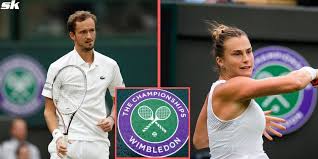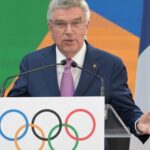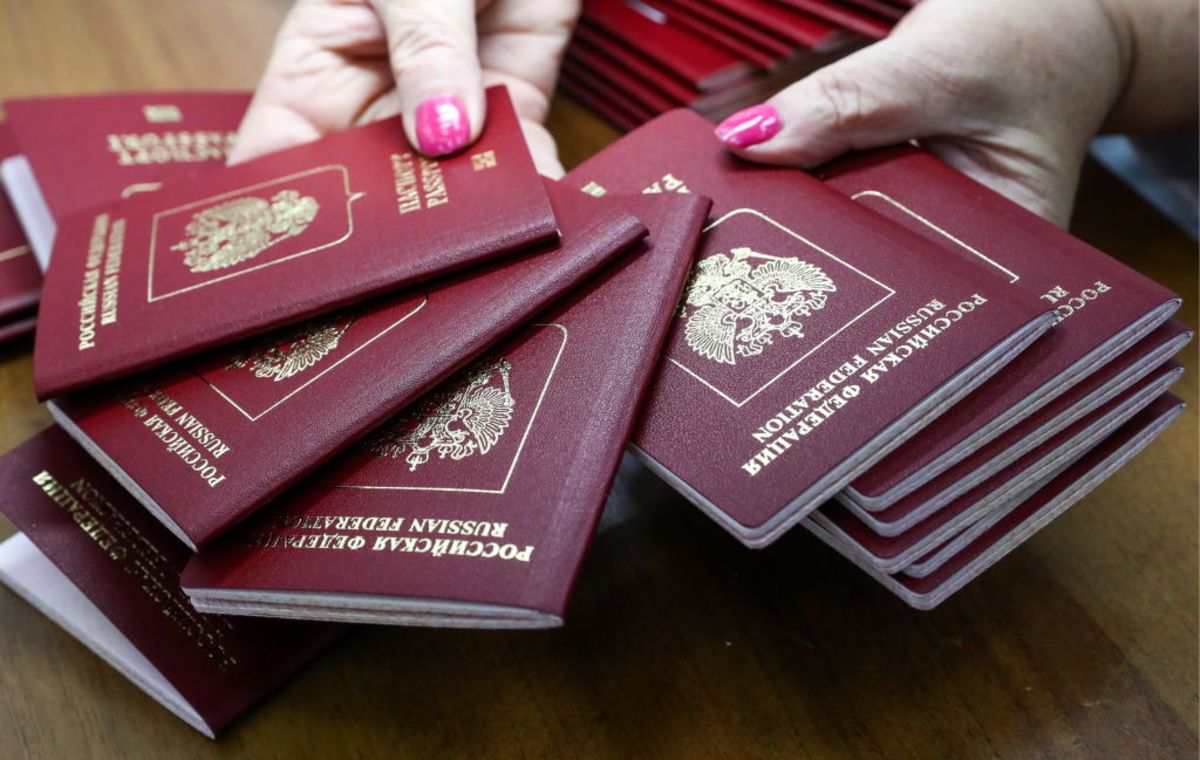
Wimbledon and the Lawn Tennis Association (LTA) have lifted a ban on Russian and Belarusian players from playing in its tournament this year. The All England Club (AELTC) imposed the restrictions in 2022 in support of the Ukraine, following Vladimir Putin’s illegal invasion of the country.
The sanction led to fines for the LTA and world ranking points being removed, but now the players will be allowed to compete, but must comply with certain conditions, starting with the signing of a declaration of neutrality.
They must also agree NOT to support the Russian and/or Belarusian states or their regimes and leaders; and NOT receive funding from Russian and/or Belarusian states, which includes any sponsorship from companies operated, or controlled by either of those countries.
The decision was reached after discussion with the UK government, the LTA and international stakeholders. Although still insisting that they stand by last year’s judgement, they nevertheless say that there has had to be an easing in their stance, otherwise they would have faced a genuine prospect of having their LTA membership cancelled by tennis’ two main professional tours, the men’s ATP and women’s WTA,
This means that those banned players from last year can also take part in other British grass-court events held in the run up to the south west London tournament, most notably at Queen’s and Eastbourne.
Wimbledon itself will run for two weeks commencing at the AELTC on 3 July.
On their own in enforcing ban
The Wimbledon championships were the only Grand Slam to deny entry to Russian and Belarusians last year with the others choosing to allow participation in their tournaments as “neutral athletes”. There was severe criticism aimed at the UK for their stance from the Association of Tennis Professionals (ATP) and the Women’s Tennis Association (WTA), who both issued significant fines totaling £1.4 million.
Question marks over lifting of ban
The decision to ease the bans has not been universally appreciated with staunch critics questioning the reasoning and pointing out that there had been no let up in Russia’s aggression or atrocities, so have been left with no alternative but to reach the conclusion that the lifting of the restrictions has been done for all the wrong reasons.
Tennis tours praise effort
The APT and WTA were obviously delighted and said they were pleased all players would now have an opportunity to compete. “It has taken a collaborative effort across the sport to arrive at a workable solution which protects the fairness of the game, and whilst this remains an extremely difficult situation, we would like to thank Wimbledon and the LTA for their efforts in reaching this outcome.” That was their reaction, while reiterating what they referred to as their “unequivocal condemnation of Russia’s war on Ukraine.”
Chairman offers justifying claim
Justification of the decision came from Ian Hewitt, chairman of the All England Club, who explained how consideration for all who might be impacted had been taken into account and only then was it decided that the course of action chosen, was indeed the most appropriate.
He was also keen to stress that should circumstances alter materially before the commencement of The Championships, then they would undoubtedly react accordingly.
In alignment with government guidance
The declarations that the players are being asked to sign have been carefully developed through constructive dialogue with the UK Government, the LTA and international stakeholder bodies in tennis, and are aligned with the Government’s guidelines issued to all sporting bodies in the UK.
Mr Hewitt continued: “There was a strong and very disappointing reaction from some governing bodies in tennis to the position taken by the All England Club and the LTA last year with consequences which, if continued, would be extremely damaging to the interests of players, fans, the Championships and British tennis.”
No comparison
The LTA also issued a statement which explained what the association’s position was this time last year, which was that it felt there was a need to send a clear signal to the Russian and Belarusian states to let it be known that their actions in Ukraine were the subject of international condemnation.
They stressed that they are aware of the continued suffering of the people of Ukraine and accepted that any problems in tennis or sport in general, are totally insignificant by comparison.
Conscious of impact if ban not lifted
Nevertheless, it was felt that the effect on British tennis of the LTA being expelled from tours would be very damaging and far reaching for the game in the UK. The impact would be felt by the millions of fans that follow the sport, the grass roots of the game, including coaches and venues which rely on the events for visibility and to bring new players into the game, and professional British players.
With that in mind and an appreciation of their responsibility as the national governing body of tennis in Britain, and after closely working with all relevant parties, they felt they had to align with the rest of the tennis world and permit both Russians and Belarussians to take part, albeit as “neutrals”.
They also made it clear that there would be a zero-tolerance approach to any flags, symbols, or other actions which support the war at any of the grass-court venues, be that from spectators or players.
Minister urges visa denial
Dmytro Kuleba, who is Ukraine’s foreign affairs minister criticised the decision and once again appealed to the UK government to stop Russian and Belarusian tennis players from entering the country by denying them a visitors visa. He called the change of approach in now allowing participation “immoral”. He accused Wimbledon of deciding to “accommodate two accomplices in crime.”
UK government backing the change
The UK culture secretary Lucy Frazer however, agreed with the AELTC’s lifting of the ban. She made the point that throughout the war in Ukraine, the UK have been clear that Russian and Belarusian athletes representing their country, should not be permitted in domestic and international sporting competitions and as far as she was concerned, that position still stands.
However, she said: “Individual, self-funded Russian and Belarusian athletes can compete in the UK, subject to following our guidance on neutrality.” As a consequese, she stated that the government were fully supportive of the new approach of the AELTC and LTA .
Russian and Belarus stars remain diplomatic
Russia’s world number five rated player, Daniil Medvedev, was naturally very pleased to hear the news, but attempted to deflect away from any controversy, simply saying: “I have said it so many times, I am not going to say anything new; I am for peace.”
Belarusian Aryna Sabalenka was keen to stress: “I did nothing bad against Ukrainian people; this is just not my fault, or under my control.” Before confirming how happy she will be to play at Wimbledon in the summer.
Murray sees both sides
Two-time Wimbledon champion Andy Murray had mixed feelings, admitting that he felt for the players who were not able to play last year, but was also in full understanding of the difficult situation it creates for everyone.
Speaking shortly before it was confirmed that the players would be allowed back in, he said: “It is a really hard call for Wimbledon, and if they are going to be allowed to play I am not going to be going nuts.”
Olympic backing
Almost to back up the decision taken, the International Olympic Committee (IOC) Executive Board have also recommended that individual Russian and Belarusian athletes should be allowed to return to its own competition, but only if they are not openly in support of the war, or affiliated to the military.
Thomas Bach, the IOC President, had previously been among those to strongly criticise Wimbledon’s ban, which he said was a form of political interference, after learning that the UK Government had advised the action last year.
Lack of support from the other slams
The All England Club had put themselves into a very tricky position by introducing the bans last year with no support from elsewhere. Indeed fans at the other three Grand Slams in Australia, France and the United States barely made a murmour at matches involving any Russian or Belarusian players.
Reluctant realism
A second ban would have pretty much meant that they would inevitably be making a commitment to continue to keep up that stance for the duration of the war, and nobody knows how long that could be.
Equally they would be determined to try and avoid making the continued suffering of the people of Ukraine any worse. In the end the risks were deemed too great and realistically, they have taken the only choice, albeit reluctantly.






0 Comments